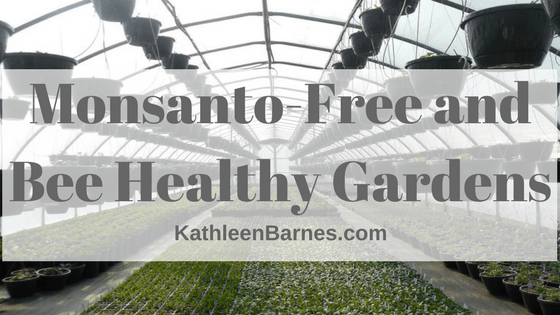It’s gardening time again—and I am so ready for it! I imagine you are, too. My lettuce, spinach and broccoli are in and thriving in the cool spring weather.
Since it’s that time of year, I’m giving you a primer on how to have a healthy, non-GMO garden free of the seed patents that Monsanto has gobbled up and which could potentially become dangerous.
Here’s what you need to know:
- Genetically modified vegetable seeds are generally not available on the consumer market unless you’re growing a lot of corn or soybeans. However, Monsanto owns 40% of the US seed market, so if you want to avoid giving your money to Monsanto, you’ll need to know who owns your seed company. This also goes for Seminis, a huge international seed research and development company owned by Monsanto.
- Monsanto owns the trademarks for many of the most popular vegetable seeds, (yes, even heirloom varieties!) even if they are not yet genetically modified. These include favorites like Early Girl, Better Boy and Celebrity tomatoes, Marketmore76 cucumbers and many more. Even if you buy seeds from completely separate companies, they may be sourced through Monsanto brands. Rule of thumb: Don’t buy these varieties. Here’s a good list of seed names owned by Monsanto. Many locally developed varieties, (like Mountain Pride in my area) are grown to respond best to local conditions, like the omnipresent tobacco mosaic we battle every year.
- Stay away from the big box centers: Their employees rarely know the sources of their plants and they are almost universally grown by large producers that buy seeds from Monsanto or through Monsanto-owned companies or patents.
- Ask questions: Ask your local nursery about the source of its seeds. I know, this can get complicated and workers on the ground may not have the answer, so you’ll have to be diligent and go up the ladder to the folks who know.
- Buy seeds from companies you know Monsanto hasn’t gotten its world seed domination tentacles into. The International Seed Saving Institute has a good list and I found another good list here to help you find seed sellers with integrity. If your seed company does not appear on the list, contact the seller and ask questions.
- It’s not the end result of avoiding Monsanto free gardens, but it’s a good first step: Ask your seed company if it’s taken the Safe Seed Pledge. The pledge reads: “Agriculture and seeds provide the basis upon which our lives depend. We must protect this foundation as a safe and genetically stable source for future generations. For the benefit of all farmers, gardeners and consumers who want an alternative, we pledge that we do not knowingly buy, sell or trade genetically engineered seeds or plants.” Here’s a list of companies that have signed the pledge.
Finally, I know this isn’t about Monsanto, but it’s equally important: PLEASE don’t buy plants of any type, even ornamentals, from the big box companies. Even thought the link between bee colony collapse and the pesticide neonicotinoids has been well-established, none of the big box companies has yet made good on a pledge to ban their use on the plants they sell. Two years ago, Lowe’s pledged to ban neonicotinoids use on the plants it sells, but it has yet to make good on that promise.
A final word: Worse yet: Monsanto and Bayer, the manufacturer of huge numbers of agri-chemicals, including neonictonoids, are about to merge. Between genetically modified foods and crops that cannot be pollinated by bees, our global food sources could be in very big trouble. This is absolutely a marriage made in hell for all of us. Stay tuned. I’ll be writing a lot more on the subject.
Here are a few articles I’ve written in the past:
- Bayer and Monsanto: Marriage Made in Hell
- A Round Up of RoundUp’s™ Lethal Effects
- Docs call for GMO labeling
- GMOs Increase Gluten Sensitivity







